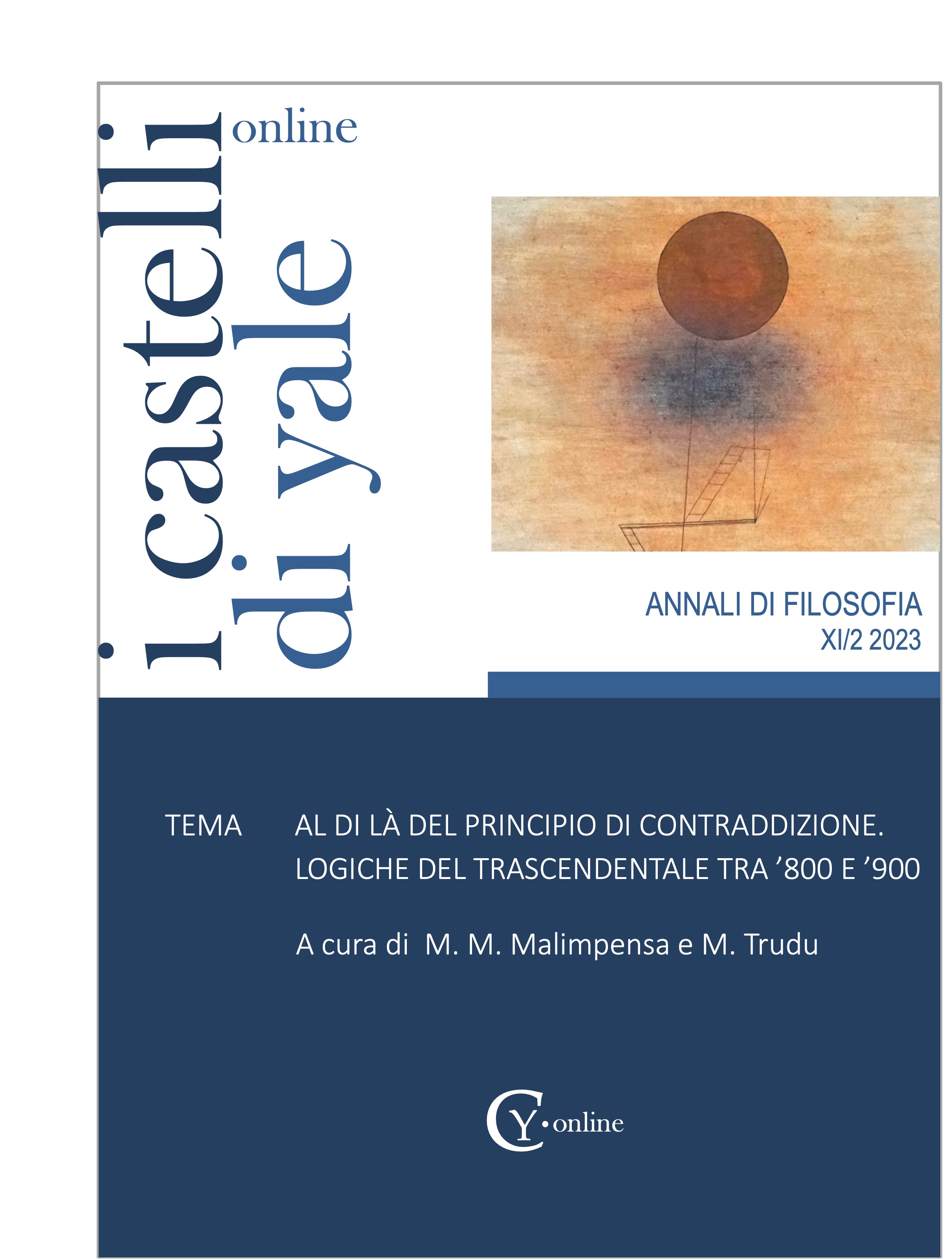Per una storia della logica trascendentale
Alcune considerazioni come introduzione
DOI:
https://doi.org/10.15160/2282-5460/2845Keywords:
Transcendental Philosophy, Logic, History of Philosophy, Idealism, PhenomenologyAbstract
This introduction aims to schematically outline the fundamental features of a history of transcendental logic and transcendental philosophy, an area yet to be exhaustively explored. The immediate objective is to identify the primary characteristics that can serve as a guide for interpreting the present issue. Through a concise overview, we explore the significant stages of this history, commencing with the works of its founders such as Kant, Fichte, and Hegel, subsequently delving into the neocriticist movement and its ramifications, culminating in the reflections of Husserl and Heidegger. In this process, it becomes evident how transcendental philosophy consistently redefines the relationship between subject and knowledge, raising crucial questions about the nature of the processes that determine its acquisition. However, it is important to emphasize that this preliminary outline represents merely a starting point. A comprehensive treatment of transcendental philosophy necessitates a thorough and detailed analysis of each phase and its philosophical and historical implications. The aim of this work, therefore, is to provide an overview that can stimulate further reflections and inquiries from interested readers.
Downloads
Published
Issue
Section
License
Copyright (c) 2024 Maurizio Maria Malimpensa, Maurizio Trudu

This work is licensed under a Creative Commons Attribution-NonCommercial-NoDerivatives 4.0 International License.


